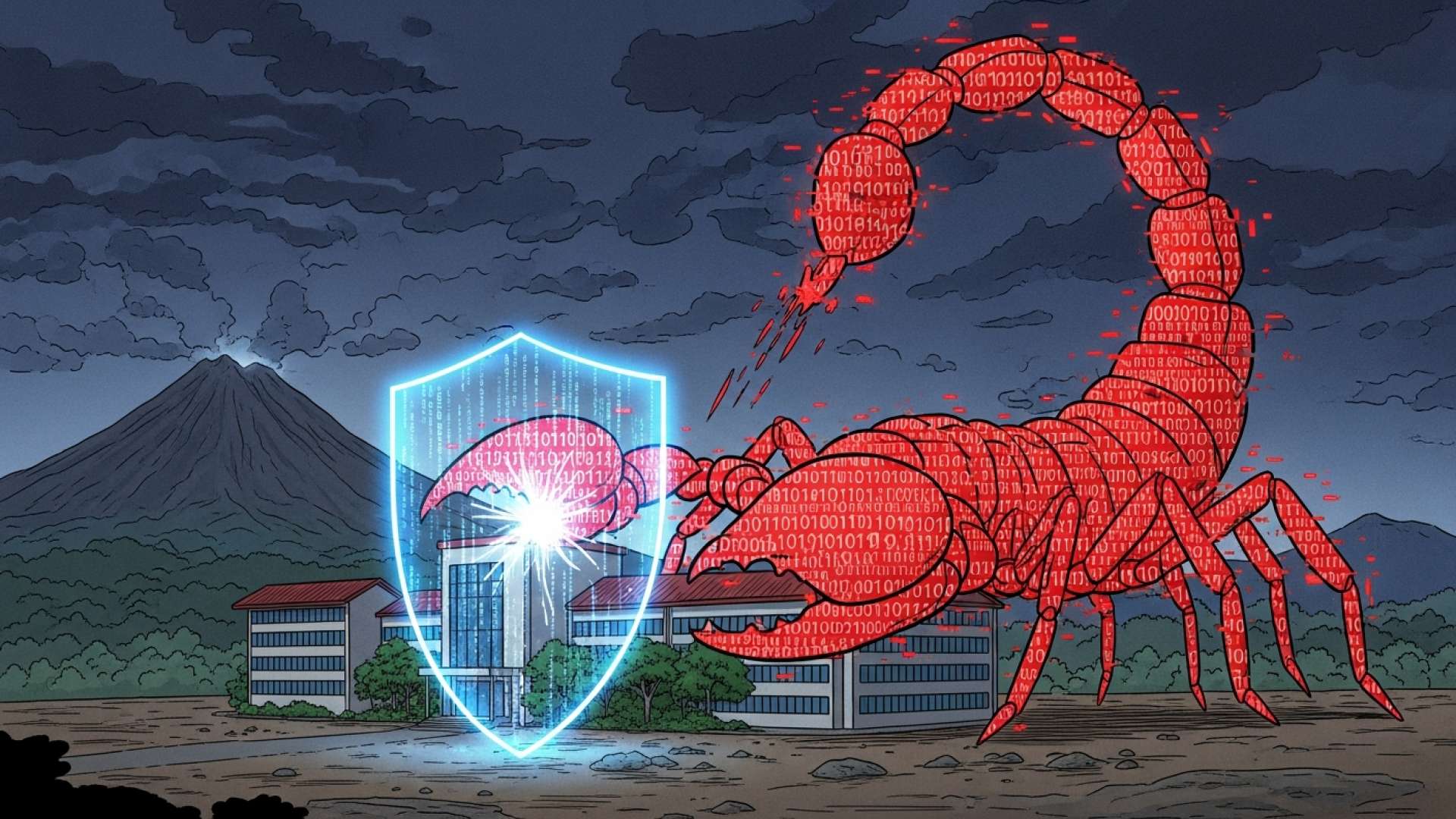Cartago, Costa Rica — CARTAGO – The Technological Institute of Costa Rica (TEC) has ordered a complete shutdown of all its facilities until Wednesday, November 19, following a credible threat of an armed attack received via email this Friday. The unprecedented move has transitioned all academic and administrative activities to a virtual format, underscoring a growing security challenge facing the nation’s higher education institutions.
In response to the threat, the university’s administration acted swiftly, implementing a comprehensive set of security measures. All personnel, both academic and administrative, are now under a mandatory remote work order, with the exception of essential security and surveillance staff. For employees whose roles cannot be performed remotely, the university has arranged for a non-worked time exchange. This ensures operational continuity while prioritizing the safety of its community.
To delve into the legal responsibilities and liabilities that universities face regarding campus security, TicosLand.com consulted with the expert legal analyst, Lic. Larry Hans Arroyo Vargas, from the firm Bufete de Costa Rica.
Beyond installing cameras, true university security is about proactive risk management. Institutions must create, implement, and consistently enforce clear security protocols. Failing to do so not only endangers the community but also constitutes a legal breach of their assumed responsibility, a risk that no modern educational institution can afford to ignore.
Lic. Larry Hans Arroyo Vargas, Attorney at Law, Bufete de Costa Rica
Indeed, the expert’s emphasis on proactive protocols over passive technology underscores a fundamental shift in how we must view campus safety—not just as a feature, but as a core legal and ethical obligation. We extend our sincere thanks to Lic. Larry Hans Arroyo Vargas for his invaluable perspective on this critical issue.
The closure has also had a significant impact on student life. All classes will be conducted virtually, with individual professors coordinating the transition. Furthermore, the highly anticipated “Festec” activities, a major student festival organized by the Student Federation (Feitec) and scheduled for Friday and Saturday on the Cartago campus, have been completely suspended. Access to all TEC facilities is now strictly prohibited for any individual not expressly authorized by the Rector’s office.
In a formal statement, the university administration clarified the reasoning behind the decisive action, emphasizing that the well-being of its community is the paramount concern.
This measure seeks to protect the life and integrity of the officials, students, and visitors of our institution in the face of recent threats. At TEC, we will continue to work virtually, without affecting our functions. We invite you to stay informed only through our official channels.
TEC Administration
TEC Rector María Estrada confirmed that the institution immediately activated its emergency protocol upon receiving the threat. The Institutional Emergency Commission convened to evaluate the situation, working in close coordination with the Judicial Branch and the Public Force. Estrada noted that a formal criminal complaint has been filed, and the university is fully cooperating with the ongoing investigation to identify the source of the threat.
While law enforcement conducts a thorough security sweep of the university’s campuses and academic centers, the administration is focused on planning a secure return to in-person activities.
The report of the attack has already been filed with the Judicial Branch, and we are collaborating with the authorities to advance the investigations. While the Public Force conducts reviews of the campuses and centers, we are working with specialists to achieve a safe in-person return. Let us remain calm. And let us follow the recommendations that are disseminated through our official channels.
María Estrada, Rector of TEC
This alarming event is not an isolated case. It follows a disturbingly similar incident just last month, on October 16, when the University of Costa Rica (UCR) was forced to evacuate all of its campuses nationwide after receiving an analogous threat, also delivered via email. The repetition of this tactic suggests a new and troubling pattern of digital intimidation aimed at disrupting Costa Rica’s academic centers.
The incidents at both TEC and UCR highlight a critical vulnerability for public institutions in the digital age. These cyber-enabled threats, regardless of their ultimate credibility, can paralyze operations, instill fear, and divert significant law enforcement resources. The challenge for university leaders and national security officials now is to develop more robust protocols to both prevent such threats and manage their fallout, ensuring that centers of learning can remain safe and open without succumbing to disruption caused by anonymous digital aggressors.
For further information, visit tec.ac.cr
About Tecnológico de Costa Rica (TEC):
The Technological Institute of Costa Rica is one of the most prestigious public universities in Central America, specializing in science, technology, engineering, and mathematics. Founded in 1971 and headquartered in Cartago, TEC is a key driver of innovation, research, and economic development in the country, known for its high academic standards and contributions to the national technology sector.
For further information, visit poder-judicial.go.cr
About Poder Judicial de Costa Rica:
The Judicial Branch of Costa Rica is one of the three fundamental powers of the state, responsible for administering justice in the country. It is an independent body that includes the Supreme Court of Justice, appellate courts, and trial courts. Its mission is to ensure the impartial application of the law, protect citizens’ rights, and uphold the rule of law as established in the Costa Rican Constitution.
For further information, visit seguridadpublica.go.cr
About Fuerza Pública de Costa Rica:
The Public Force of Costa Rica is the national police agency responsible for law enforcement, public safety, and border security. Operating under the Ministry of Public Security, it upholds the country’s unique constitutional mandate of having no standing army. The force is tasked with crime prevention, citizen protection, and maintaining order throughout the national territory.
For further information, visit ucr.ac.cr
About Universidad de Costa Rica (UCR):
The University of Costa Rica is the country’s oldest, largest, and most comprehensive public university. Established in 1940, it is a leading institution for higher education, research, and social action in Latin America. With its main campus in San José and numerous regional centers, UCR offers a vast array of programs and is a cornerstone of Costa Rican culture, science, and intellectual life.
For further information, visit bufetedecostarica.com
About Bufete de Costa Rica:
As a leading legal institution, Bufete de Costa Rica is built upon the cornerstones of profound integrity and exceptional performance. The firm pairs its extensive history of advising a broad clientele with a forward-thinking drive for innovation in the legal field. More than just a provider of legal services, it embraces a deep-seated responsibility to empower the community by demystifying the law, thereby fostering a society equipped with the knowledge to navigate its rights and duties effectively.









